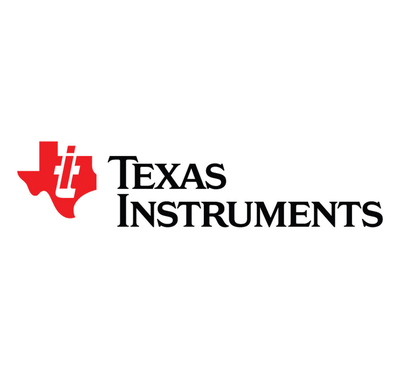New edge AI-enabled radar sensor and automotive audio processors from TI empower automakers to reimagine in-cabin experiences
Texas Instruments (TXN) has unveiled new integrated automotive chips aimed at enhancing in-cabin experiences. The company introduced the AWRL6844, an edge AI-enabled 60GHz mmWave radar sensor that combines three in-cabin sensing features, potentially reducing implementation costs by $20 per vehicle. The sensor achieves 98% accuracy in occupant detection and over 90% accuracy in child presence detection.
TI also launched the AM275x-Q1 MCUs and AM62D-Q1 processors featuring TI's vector-based C7x DSP core, delivering four times the processing performance of other audio DSPs. Additionally, the company introduced the TAS6754-Q1 audio amplifier with one-inductor modulation technology, which achieves Class-D performance with half the inductors of existing amplifiers.
These innovations support advanced features including spatial audio, active noise cancellation, and sound synthesis, while meeting Euro NCAP requirements for 2025.
Texas Instruments (TXN) ha svelato nuovi chip automobilistici integrati destinati a migliorare l'esperienza a bordo. L'azienda ha introdotto il AWRL6844, un sensore radar mmWave a 60GHz abilitato per AI edge, che combina tre funzionalità di rilevamento in cabina, riducendo potenzialmente i costi di implementazione di $20 per veicolo. Il sensore raggiunge un'accuratezza del 98% nel rilevamento degli occupanti e oltre il 90% nella rilevazione della presenza di bambini.
TI ha anche lanciato i MCU AM275x-Q1 e i processori AM62D-Q1 che presentano il core DSP basato su vettori C7x di TI, offrendo quattro volte le prestazioni di elaborazione rispetto ad altri DSP audio. Inoltre, l'azienda ha introdotto l'amplificatore audio TAS6754-Q1 con tecnologia di modulazione a induttore singolo, che raggiunge prestazioni di Classe-D con la metà degli induttori degli amplificatori esistenti.
Queste innovazioni supportano funzionalità avanzate come audio spaziale, cancellazione attiva del rumore e sintesi del suono, rispettando nel contempo i requisiti Euro NCAP per il 2025.
Texas Instruments (TXN) ha presentado nuevos chips automotrices integrados destinados a mejorar las experiencias dentro del vehículo. La compañía introdujo el AWRL6844, un sensor de radar mmWave de 60GHz habilitado para IA en el borde, que combina tres funciones de detección en el interior, lo que podría reducir los costos de implementación en $20 por vehículo. El sensor logra una precisión del 98% en la detección de ocupantes y más del 90% en la detección de la presencia de niños.
TI también lanzó los MCU AM275x-Q1 y los procesadores AM62D-Q1 que presentan el núcleo DSP C7x basado en vectores de TI, ofreciendo cuatro veces el rendimiento de procesamiento de otros DSP de audio. Además, la empresa introdujo el amplificador de audio TAS6754-Q1 con tecnología de modulación de un inductor, que logra un rendimiento de Clase-D con la mitad de inductores que los amplificadores existentes.
Estas innovaciones respaldan características avanzadas como audio espacial, cancelación activa de ruido y síntesis de sonido, al mismo tiempo que cumplen con los requisitos de Euro NCAP para 2025.
텍사스 인스트루먼츠 (TXN)가 차량 내 경험을 향상시키기 위한 새로운 통합 자동차 칩을 발표했습니다. 이 회사는 세 가지 차량 내 감지 기능을 통합한 AI 엣지 기능을 갖춘 60GHz mmWave 레이더 센서 AWRL6844를 소개하며, 이로 인해 차량당 구현 비용을 20달러 절감할 수 있습니다. 이 센서는 탑승자 감지에서 98%의 정확도와 아동 존재 감지에서 90% 이상의 정확도를 달성합니다.
또한 TI는 TI의 벡터 기반 C7x DSP 코어를 특징으로 하는 AM275x-Q1 MCU와 AM62D-Q1 프로세서를 출시했으며, 이는 다른 오디오 DSP의 처리 성능보다 4배 높은 성능을 제공합니다. 추가로 이 회사는 기존의 증폭기보다 절반의 인덕터로 클래스-D 성능을 달성하는 단일 인덕터 변조 기술을 갖춘 오디오 앰프 TAS6754-Q1를 소개했습니다.
이러한 혁신은 공간 오디오, 능동 소음 제거 및 사운드 합성을 포함한 고급 기능을 지원하며, 2025년 유로 NCAP 요구 사항을 충족합니다.
Texas Instruments (TXN) a dévoilé de nouvelles puces automobiles intégrées conçues pour améliorer l'expérience à bord. L'entreprise a présenté le AWRL6844, un capteur radar mmWave de 60 GHz activé par l'IA en périphérie, qui combine trois fonctionnalités de détection à l'intérieur de l'habitacle, ce qui peut potentiellement réduire les coûts de mise en œuvre de 20 $ par véhicule. Ce capteur atteint une précision de 98 % dans la détection des occupants et plus de 90 % dans la détection de la présence d'enfants.
TI a également lancé les MCU AM275x-Q1 et les processeurs AM62D-Q1 dotés du cœur DSP C7x basé sur des vecteurs de TI, offrant quatre fois les performances de traitement des autres DSP audio. De plus, l'entreprise a introduit l'amplificateur audio TAS6754-Q1 avec technologie de modulation à un inducteur, qui atteint une performance de Classe-D avec la moitié des inducteurs des amplificateurs existants.
Ces innovations soutiennent des fonctionnalités avancées telles que l'audio spatial, l'annulation active du bruit et la synthèse sonore, tout en respectant les exigences Euro NCAP pour 2025.
Texas Instruments (TXN) hat neue integrierte Automobilchips vorgestellt, die darauf abzielen, das Erlebnis im Fahrzeug zu verbessern. Das Unternehmen stellte den AWRL6844 vor, einen mit Edge-AI ausgestatteten 60GHz mmWave-Radarsensor, der drei Funktionen zur Innenraumerkennung kombiniert und potenziell die Implementierungskosten um 20 USD pro Fahrzeug senkt. Der Sensor erreicht eine Genauigkeit von 98 % bei der Belegungserkennung und über 90 % bei der Erkennung von Kindern.
TI hat auch die AM275x-Q1 MCUs und die AM62D-Q1 Prozessoren mit TIs vektorbasiertem C7x DSP-Kern auf den Markt gebracht, die eine viermal höhere Verarbeitungsleistung als andere Audio-DSPs bieten. Darüber hinaus stellte das Unternehmen den TAS6754-Q1 Audioverstärker mit Ein-Induktormodulationstechnik vor, der eine Class-D-Leistung mit der Hälfte der Induktoren vorhandener Verstärker erreicht.
Diese Innovationen unterstützen fortschrittliche Funktionen wie räumliches Audio, aktive Geräuschunterdrückung und Klangsynthese und erfüllen gleichzeitig die Euro-NCAP-Anforderungen für 2025.
- New radar sensor reduces implementation costs by $20 per vehicle
- Achieves 98% accuracy in occupant detection
- New C7x DSP core delivers 4x processing performance versus competitors
- New audio amplifier reduces component count while maintaining performance
- None.
Insights
News highlights:
- TI enhances detection accuracy with the industry's first single-chip 60GHz millimeter-wave (mmWave) radar sensor to support three in-cabin sensing applications enabled by edge artificial intelligence (AI).
- Auto manufacturers can deliver premium audio experiences with a highly integrated automotive Arm®-based microcontroller (MCU) and processor with TI's vector-based C7x digital signal processor (DSP) core to achieve industry-leading processor performance.
- TI's new audio amplifier is the industry's first with one-inductor (1L) modulation technology, allowing it to achieve Class-D performance with half the number of inductors.
For more information, see ti.com/AWRL6844, ti.com/AM2754-Q1, ti.com/AM62D-Q1 and ti.com/TAS6754-Q1.
"Today's drivers expect any car – entry-level to luxury, combustion to electric – to have enhanced in-cabin experiences," said Amichai Ron, senior vice president, TI Embedded Processing. "TI continues to provide innovative technologies to enable the future of the automotive driving experience. Our edge AI-enabled radar sensors allow automakers to make vehicles safer and more responsive to the driver, while our audio systems-on-chip elevate the drive through more immersive audio. Together they create a whole new level of in-cabin experiences."
Edge AI-enabled, three-in-one radar sensor increases detection accuracy
Original equipment manufacturers (OEMs) are gradually designing in more sensors to enhance the in-vehicle experience and meet evolving safety standards. TI's edge AI-enabled AWRL6844 60GHz mmWave radar sensor enables engineers to incorporate three in-cabin sensing features to replace multiple sensor technologies, such as in-seat weight mats and ultrasonic sensors, lowering total implementation costs by an average of
The AWRL6844 integrates four transmitters and four receivers, enabling high-resolution sensing data at an optimized cost for OEMs. This data feeds into application-specific AI-driven algorithms on a customizable on-chip hardware accelerator and DSP, improving decision-making accuracy and reducing processing time. The edge intelligence capabilities of the AWRL6844 sensor that help improve the driving experience include these examples:
- While driving, it supports occupant detection and localization with
98% accuracy to enable seat belt reminders. - After parking, it monitors for unattended children in the vehicle, using neural networks that detect micromovements in real time with over
90% classification accuracy. This direct sensing capability enables OEMs to meet 2025 European New Car Assessment Program (Euro NCAP) design requirements. - When parked, it adapts to different environments through intelligent scanning, reducing false intrusion detection alerts caused by car shaking and external movement.
To learn more, read the technical article, "Reducing In-Cabin Sensing Complexity and Cost with a Single-Chip 60GHz mmWave Radar Sensor."
Deliver premium automotive audio with TI's complete audio portfolio
As driver expectations grow for elevated in-cabin experiences across vehicle models, OEMs aim to offer premium audio while minimizing design complexity and system cost. AM275x-Q1 MCUs and AM62D-Q1 processors reduce the number of components required for an automotive audio amplifier system by integrating TI's vector-based C7x DSP core, Arm cores, memory, audio networking and a hardware security module into a single, functional safety-capable SoC. The C7x core, coupled with a matrix multiply accelerator, together form a neural processing unit that processes both traditional and edge AI-based audio algorithms. These automotive audio SoCs are scalable, allowing designers to meet memory and performance needs, from entry-level to high-end systems, with minimal redesign and investment.
TI's next-generation C7x DSP core achieves more than four times the processing performance of other audio DSPs, allowing audio engineers to manage multiple features within a single core. AM275x-Q1 MCUs and AM62D-Q1 processors enable immersive audio inside the cabin with features such as spatial audio, active noise cancellation, sound synthesis and advanced vehicle networking, including Audio Video Bridging over Ethernet.
"Dolby's longtime collaboration with Texas Instruments has enabled incredible audio experiences in the home, which we're now bringing into the car," said Andreas Ehret, senior director of Automotive Business at Dolby Laboratories. "With TI's C7x DSP core, we can now deliver the latest Dolby Atmos capabilities more efficiently, including support for even smaller form factor audio systems so nearly all vehicles can have Dolby Atmos. Together, these products can help turn every car ride into an immersive entertainment experience."
To further optimize their automotive audio designs, engineers can use TI's TAS6754-Q1 audio amplifier with innovative 1L modulation technology to deliver class-leading audio performance and power consumption, with half the number of inductors compared to existing Class-D amplifiers. The TAS67xx-Q1 family of devices, which integrates real-time load diagnostics required by OEMs, helps engineers simplify designs, decrease costs, and increase efficiency without sacrificing audio quality.
To learn more, read the company blog, "Redefining the commute: The advanced audio technology transforming your drive."
TI at CES 2025
At CES 2025, TI will demonstrate how semiconductor technologies make it possible to reimagine experiences everywhere by enabling new levels of automation, intelligence, power efficiency and affordability. Demonstrations include innovations in software-defined vehicles, advanced driver-assistance systems, robotics, medical wearables, energy infrastructure and personal electronics. See ti.com/CES for more information.
- Tuesday, Jan. 7 through Friday, Jan. 10: Visit TI in the
Las Vegas Convention Center North Hall, meeting room No. N116. - Thursday, Jan. 9 at 4 p.m. Pacific Standard time: Fern Yoon will participate in "The Road Ahead: Software Defined Vehicles."
Package, availability and pricing
- Preproduction quantities of the AWRL6844, AM2754-Q1, AM62D-Q1 and TAS6754-Q1 are available for purchase now on TI.com.
- Multiple payment and shipping options are available.
- Evaluation modules are available for all four devices.
About Texas Instruments
Texas Instruments Incorporated (Nasdaq: TXN) is a global semiconductor company that designs, manufactures and sells analog and embedded processing chips for markets such as industrial, automotive, personal electronics, communications equipment and enterprise systems. At our core, we have a passion to create a better world by making electronics more affordable through semiconductors. This passion is alive today as each generation of innovation builds upon the last to make our technology more reliable, more affordable and lower power, making it possible for semiconductors to go into electronics everywhere. Learn more at TI.com.
Trademarks
All registered trademarks and other trademarks belong to their respective owners.
![]() View original content to download multimedia:https://www.prnewswire.com/news-releases/new-edge-ai-enabled-radar-sensor-and-automotive-audio-processors-from-ti-empower-automakers-to-reimagine-in-cabin-experiences-302342101.html
View original content to download multimedia:https://www.prnewswire.com/news-releases/new-edge-ai-enabled-radar-sensor-and-automotive-audio-processors-from-ti-empower-automakers-to-reimagine-in-cabin-experiences-302342101.html
SOURCE Texas Instruments









